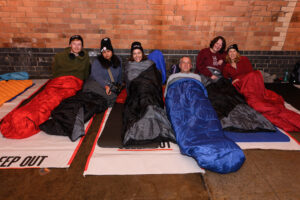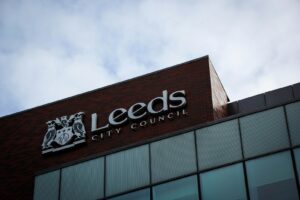A new report has shown a drop in the number of rough sleepers in London, which cross-party group London Councils has called a ‘real success story’.
The figures from the Combined Homelessness and Information Network (CHAIN) revealed that 8,329 people were seen sleeping on the streets by outreach workers in 2021/22, a 24% fall from the previous year.
Since the pandemic London has strengthened cross-agency co-ordination to help rough sleepers across the capital, through partnerships with City Hall, government, the voluntary sector, health services and others.
Cllr Darren Rodwell, London Councils’ Executive Member for Regeneration, Housing & Planning, said: ‘The fall in rough sleeping numbers is turning into a real success story for London.
‘It demonstrates the difference that can be made by local councils, voluntary sector groups, the Mayor and the government all working in close partnership and putting resources into the frontline services that help rough sleepers get off the streets.
‘There’s no room for complacency. Even one person sleeping rough is one too many, and we’re very aware the cost-of-living crisis means huge numbers of Londoners are struggling financially and at heightened risk of homelessness.
‘It’s crucial that funding for rough sleeping services is maintained so that this trend can continue, but we also need to see more attention paid to the wider homelessness picture which remains a key challenge for the capital.’
Despite the fall in homelessness, London boroughs are warning that the availability of vital services like immigration advice remains critical to keep up this success.
It’s estimated half of rough sleepers are not from the UK and require help to establish their eligibility for state support, while mental health services are also important to address any complex needs they have.
The report is based on those encountered sleeping on the streets or in open spaces, such as doorways, stairwells and parks and does not include the ‘hidden homeless’ sleeping on sofas or living in squats.
This does not account for the vast majority of homeless people in the capital, as there are 155,000, including 86,000, currently living in temporary accommodation.
In related news, reforms to the private rental sector laid out in a government White Paper have been welcomed by London Councils, who say the proposals could reduce homelessness in the capital.
Photo by Jon Tyson

















Leave a Reply